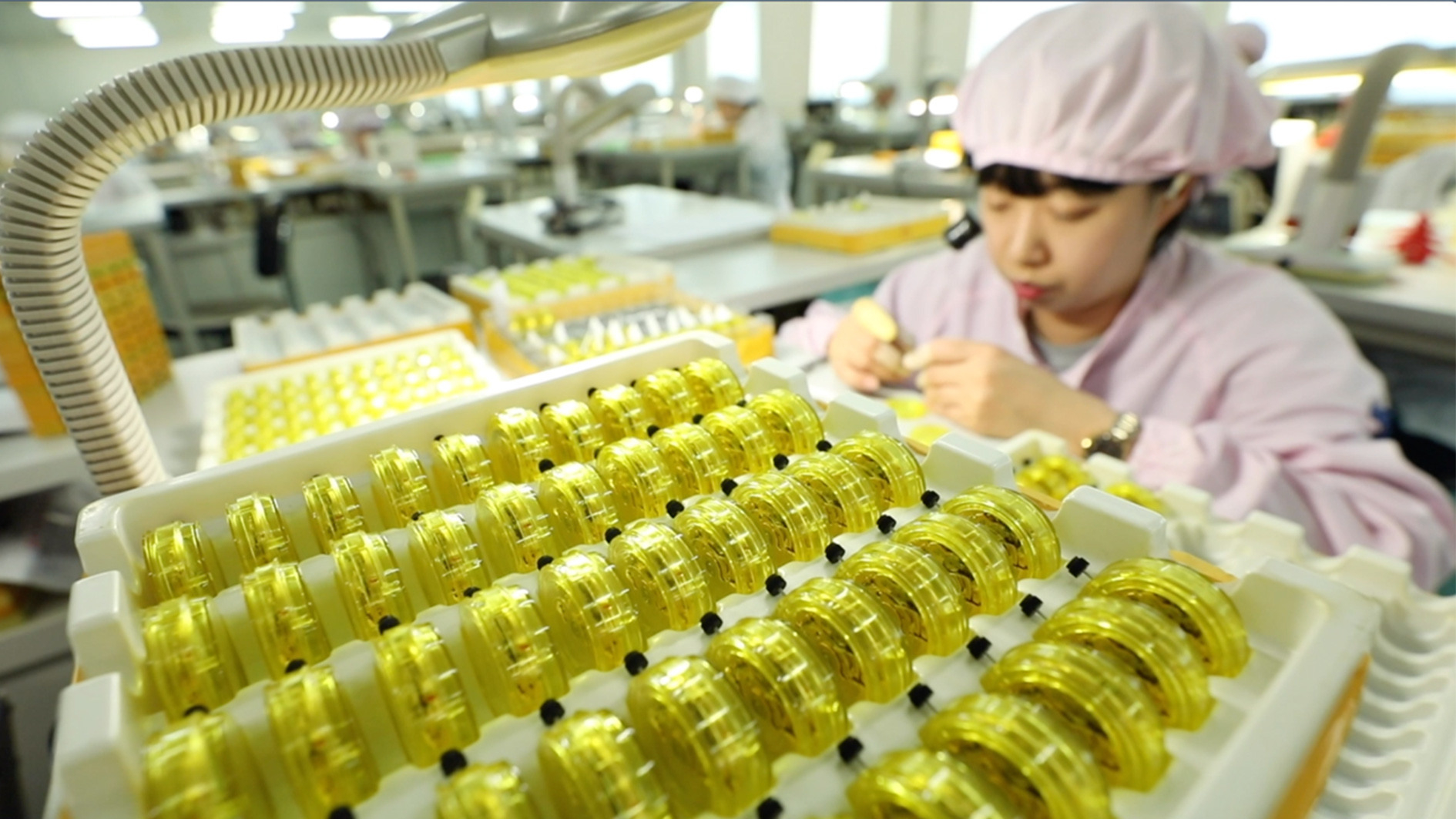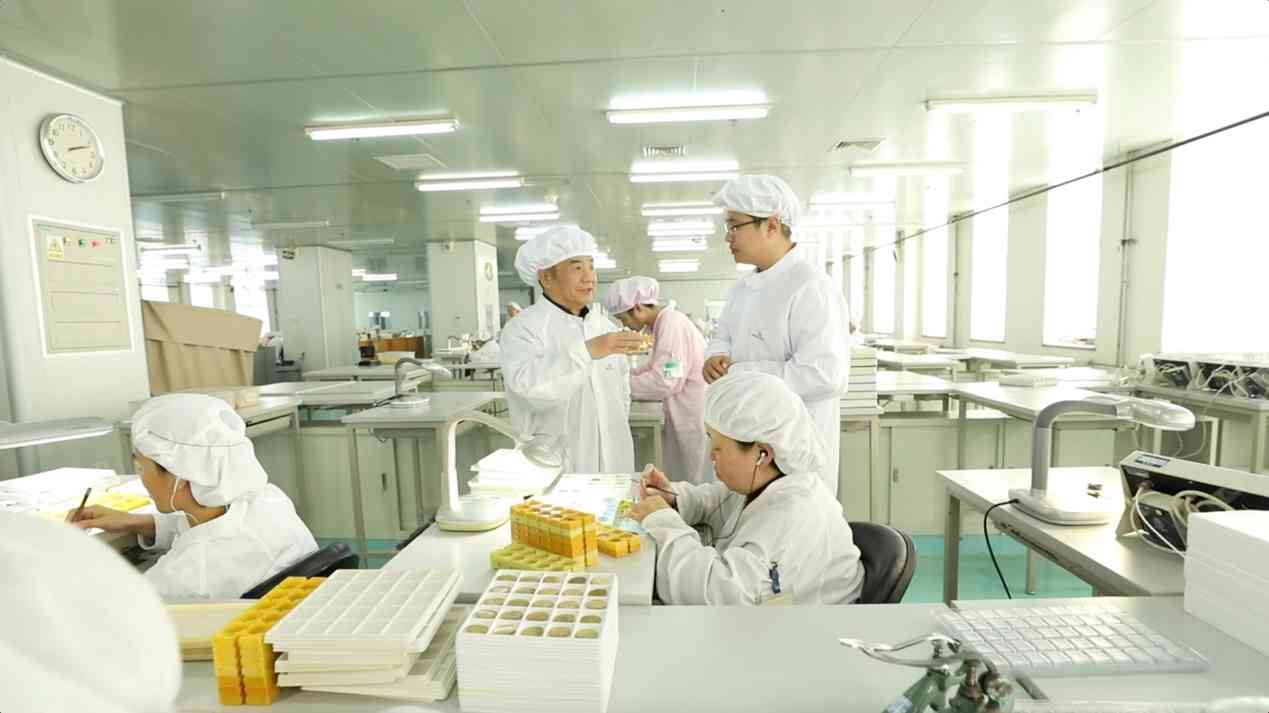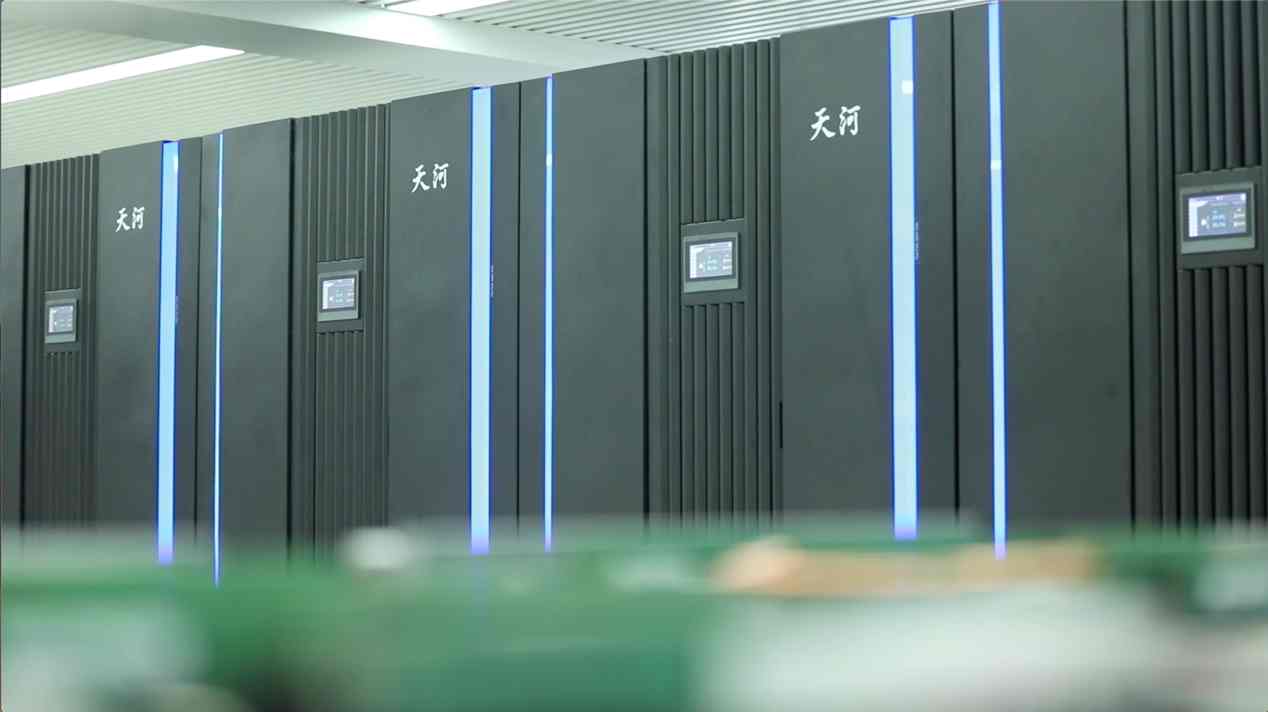
Business
22:01, 05-Dec-2018
Tianjin seeks structural reform to technology-driven industry
Updated
22:01, 08-Dec-2018
By Zhao Yunfei, Shen Langlang, Zhao Jing
02:40

China's northern city of Tianjin has long been known as one of the country's major industrial bases. Prior to the country's reform and opening-up, the city was already a leader in manufacturing. But for a certain period of time during the initial stage of reform and opening-up, the city lost some of its advantages as new economic powerhouses emerged in other parts of the country.
In recent years, the local government in Tianjin has been taking measures to upgrade its industries in an effort to reclaim its past glories.
Tianjin Seagull is the birthplace of China's first domestically-made watch. Generations of workers have committed their entire careers there. The brand has more than 60 years of history.

Senior Technician Qi Zhili (L) is one of the many who have worked at Seagull for decades. /CGTN Photo
Senior Technician Qi Zhili (L) is one of the many who have worked at Seagull for decades. /CGTN Photo
Senior Technician Qi Zhili has worked here for nearly five decades.
"We have to have a kind of spirit to make perfection more perfect. Otherwise, we cannot ensure the quality of our watches. We have to devote our full hearts into what we are doing," Qi said.
Seagull's rise can be traced back to the 1950s when Tianjin was the hub of "Made in China" products. Besides watches, Tianjin is home to China's first camera, first TV, and first bicycle. But as time went on, the city's industrial advantage dwindled.
"Now Seagull is enduring a lot of pressure. We have put a lot of efforts into finding solutions," said Wang Gang, General Manager of Seagull.
As the market expands, standards have been stepped up, and many Tianjin companies face competition at home and abroad.
A structural reform is currently underway in the city. With its strong manufacturing background, Tianjin has the potential to win another battle during the reform in the new era. It may start with Tianhe, one of the world's fastest computers offering Tianjin super computing support.

The computational speed of Super Computer Tianhe-1 is at least one billion calculations per second. /CGTN Photo
The computational speed of Super Computer Tianhe-1 is at least one billion calculations per second. /CGTN Photo
"China's development has two perspectives. One is innovation-driven development, and the other is industry transformation. These two perspectives are our goals, too. Profits in industrial manufacturing are low. Many companies can hardly afford to build their own research platforms. We are here to help," said Meng Xiangfei, Head of the Application Research Center at the National Super Computer Center in Tianjin.
Like many other old industrial cities, Tianjin is also in a challenging time of transition. The government has been seeking innovation, moving to high-end manufacturing and attracting talent as ways to transform the city.
"I would say that the industrial transformation of the city is a tedious, even painstaking process. Industry upgrading forces the city to eliminate a big amount of outdated production capacity. That's why we've seen a drop statistically, and the public need to understand that," said Zhou Shengxi, Chief Economist of Tianjin Municipal Industry and Information Technology Bureau.
Zhou said the key to Tianjin's reform is attracting the right talent and fostering the best technology. As industries try to find their way, the Tianjin municipal government is making considerable headway in coming up with policies to encourage these two.

SITEMAP
Copyright © 2018 CGTN. Beijing ICP prepared NO.16065310-3
Copyright © 2018 CGTN. Beijing ICP prepared NO.16065310-3